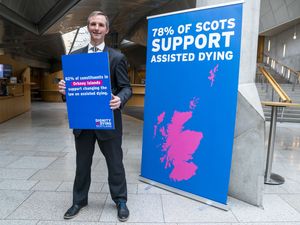Six million people in UK are behind on bills due to Covid-19, study finds
One in four people who are parents or carers have fallen behind on their bills, compared to one in 14 people without caring responsibilities.

Six million people across the UK have fallen behind on household bills due to coronavirus, a new study has found.
Research from Citizens Advice shows that one in nine people in the UK are behind on bills, with around a fifth of these individuals having to go without essentials including food.
The study finds that carers and those who were shielding during the pandemic and key workers are twice as likely to have fallen behind on bill payments due to coronavirus, while black people, those aged between 18 and 34 and disabled people are also at least twice as likely to be in arrears.
Citizens Advice warn that with protections against eviction for renters due to end this weekend, something Labour leader Sir Keir Starmer has protested against, many of those who are struggling may face harsh enforcement.
The charity is calling on the Government to give financial support to those in debt in the form of a one-off or time-limited financial support for arrears built up because of coronavirus, with the cost of relief shared fairly between Government, creditors and individuals.
It says this would be tailored to each sector but could include grants, payment matching or Government-backed loans.
One in four people who are parents or carers (24%) have fallen behind on their bills, compared to one in 14 people (7%) without caring responsibilities, the research finds.
Meanwhile one in five (22%) people in the shielded group are behind, compared to around one in 20 (6%) who were not in the group.
The study adds that one in five key workers (21%) have fallen behind on their bills, in comparison to one in 14 (7%) non-key workers.
The charity found that one in five people who are behind on bills have had to sell possessions to cope and warns that people who sought help with debt since March this year will need, on average, two and a half years to pay back their current priority debts, they suggest.
Chris Whitehead, a debt adviser at Citizens Advice Newcastle, said: “We’re hearing from people who are struggling to keep their head above water after months on reduced incomes.
“From having fallen behind on a few bills, they will soon be at risk of losing the roof above their head, or being targeted by bailiffs. They are simply overwhelmed and at rock bottom.”
Dame Gillian Guy, chief executive of Citizens Advice, said: “Protections put in place by the Government, businesses and regulators have staved off the worst consequences of lockdown debt – so far. But with these measures beginning to end, millions will now face the repercussions.
“It is not right that people who’ve followed Government guidance by shielding, stayed at home to care for others, been forced to work less, or lost their jobs altogether should be the ones left facing a financial black hole.
“Government and businesses must help them now. Financial support for those who’ve fallen into debt must be prioritised to free them from the damaging consequences of long-term debt, and help strengthen the economic recovery.”
A Government spokesperson said: “We understand that this has been a tough period for many, especially carers and those shielding, which is why we have acted quickly to provide support with household bills.
“We have injected an extra £9.3 billion into the welfare system, protected 9.6 million jobs through the furlough scheme and provided additional support for mortgage payers and renters during the pandemic.
“On top of this we have already taken significant steps including raising the living wage, ending the benefit freeze and increasing work incentives.
“To help with energy bills, suppliers have agreed measures to support those most in need during the crisis, Ofgem are planning to introduce permanent measures to support prepayment meter customers with their bills and up to 11 million customers are being protected from rip-off deals thanks to our energy price cap.”
Shadow chancellor Anneliese Dodds said: “Even before coronavirus hit, many families in the UK were living on the breadline and this report confirms that the crisis has only made things worse. A third of all adults had no savings going into this crisis and we now see that millions of families have been forced into debt.
“Sadly the Government’s action only risks making this worse. Rather than targeting support to where it is needed most, as Labour has called for, the government is insisting on a one-size-fits-all withdrawal that will plunge us deeper into a jobs crisis and force even more people into dire financial straits. They must change course.
“Over the longer term, the Government must look at why so many families lack financial resilience in the first place, tackling insecure jobs and poverty wages and providing a proper safety net by replacing Universal Credit.”





